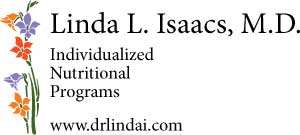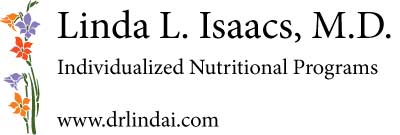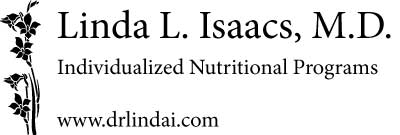Supplements
Please note that nothing on this page or in the video should be construed as making specific suggestions about supplement dosing, timing, or content. Dr. Isaacs does not make recommendations to people who are not her patients.
It may be possible to maintain health by the use of a good quality diet alone. However, most patients want to improve their health, and that takes a lot of support.
The supplement regimens vary from patient to patient, but may include the following:
Vitamins and minerals: These are designed to have a balancing effect on the autonomic nervous system. Dr. Gonzalez’ book Nutrition and the Autonomic Nervous System discusses this in great detail; you can read Dr. Isaacs’ Foreword to the book for a brief review.
Aids to detoxification and metabolism: supplements such as alpha-lipoic acid, N-acetyl-cysteine, resveratrol or ubiquinol might be included.
Glandular extracts: Dr. Isaacs reviewed the value of these products and the history of their use in an article in the peer-reviewed journal Integrative Medicine: A Clinician's Journal and in the Price-Pottenger Journal. And while she uses glandulars for almost all patients, in an article published in the Townsend Letter, she discusses how glandulars were helpful for three patients diagnosed with lupus.

Pancreas product: The recommended pancreas product, made from pig pancreas and containing naturally occurring enzymes, was developed specifically for use in this program. Some doses are taken with meals; some must be taken an hour or more away from any food, and some are taken in the middle of the night. The image to the right shows a pancreas capsule, with a nickel coin to illustrate the size.
Two articles by Dr. Isaacs go into the rationale for the use of pancreas product in cancer. One, in the peer-reviewed journal Integrative Cancer Therapies, is longer and more technical. The second article was published in the Price-Pottenger Journal and includes interviews with three of her patients.
Dr. Nicholas Gonzalez also wrote an article about the history of the use of pancreatic enzymes in cancer, published in 2014 in the peer-reviewed journal Alternative Therapies in Health and Medicine.
How to stay on track? The video below offers some suggestions.




